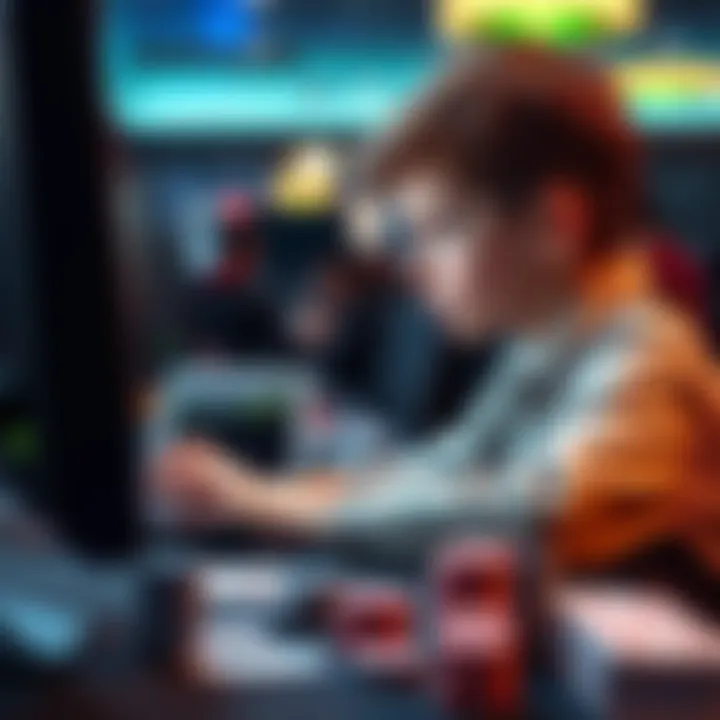Online Poker Debate | Young Gambler Sparks Controversy
Edited By
David O'Reilly

A father’s concern over his 12-year-old son’s online poker habits ignites fierce discussions among people on forums, focusing on gambling addiction and skill levels in the game. As topics of concern arise, the community voices differing opinions, raising critical questions about youth engagement in gaming.
Growing Concerns Over Online Poker Habits
The situation gained traction when it was revealed that the child plays 12 tables simultaneously, and allegedly claims to be up $6,000. Experts from the community urge caution, suggesting that if he tracks results, he may be serious, whereas a lack of tracking could indicate a lack of skill, often termed as being a "fish" in poker slang. "If he’s not tracking online results, your son is a fish, I'm sorry," noted one commentator.
Shifting Perspectives on Poker's Nature
A common theme emerges surrounding the skill versus luck debate in poker. While some argue that poker is a gamble influenced by luck, others insist that skill governs long-term success. One user stated, "Poker is a game of skill in which results are mediated by variance." This highlights the belief that while luck may play a role, consistent success requires deep strategic understanding and psychological resilience.
Another contributor shared, "The money can go quick. True wins are registered over long periods of time." This sentiment reflects the need for gamblers to be emotionally equipped to handle both wins and losses, especially important for someone so young.
Balancing Gaming and Youth Life
Worries about addiction blend with the need for balance in the child's life. Forum participants recommend monitoring his time spent on poker against other activities. One remarked, "Make sure he is doing his homework, exercise, and see his friendsbasically, doing stuff he should be doing at his age." The concern for holistic youth development is palpable in these discussions.
Key Points to Consider
⚖️ Skill vs. Luck: Discussions emphasize the distinction between skill in poker versus the pure chance associated with many forms of gambling.
🔍 Monitoring Activity: Community members highlight the importance of overseeing the child’s poker activities to prevent potential addiction.
🕒 Engagement in Life: The debate suggests young players must balance gaming with social and academic obligations.
This conversation continues to evolve as parents and players alike assess what it truly means for a young person to engage in a game that straddles the line between skill and gambling. The implications of this debate will likely influence how future generations approach poker and online gaming.
Future Trajectories of Young Gamblers
There's a strong chance that discussions like these will lead to stricter regulations around youth engagement in online poker. Experts estimate that around 70% of parents may start monitoring their children's gaming habits more closely, driven by concerns about addiction and well-being. Additionally, educational institutions might introduce programs aimed at enhancing financial literacy and responsible gaming practices for teens, which could shape how young players approach poker in the future. As more parents become aware of the balance needed between recreation and responsibility, we can expect a surge in community-led dialogues and initiatives focused on youth gaming strategies.
Reflections from the World of Competitive Chess
An interesting parallel can be drawn between this situation and the rise of children in competitive chess during the 1990s. Back then, chess prodigies faced scrutiny over the intensity of their training and the pressure to perform. Just as with poker today, the concern was whether young competitors could navigate both the highs and lows of their craft, often leading to burnout or withdrawal from the scene. This slice of history echoes today’s poker discussions as both chess and poker involve strategic thinking and psychological resilience. Understanding how young minds engage with intensely competitive environments reveals a lot about the potential paths they could take in gaming and life.
